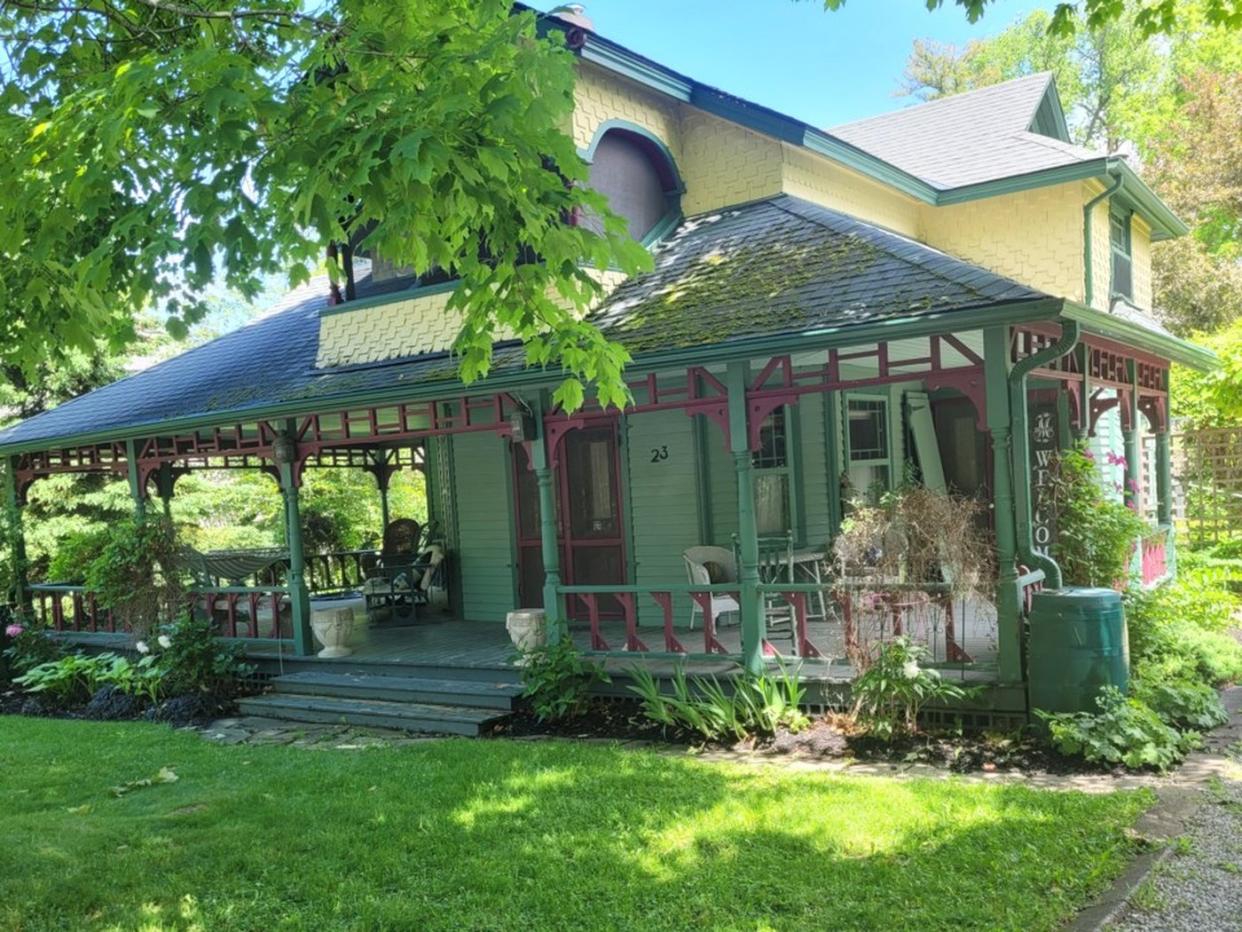Rodent infestation hampering designation of important heritage home

A cottage that has been in the Chautauqua area since the late 1800s and is currently in the process of being considered for heritage designation needs attention due to problems being created by rodents.
Adam Jowett’s mother Mimi McEwen lived at the Peake Inn on Vincent Street up until she died a few years ago. Jowett made a presentation to the town’s municipal heritage committee Wednesday evening and said he has been spending money and time on weekends at the site since his mother’s death.
The upstairs of the two-floor home is infested with squirrels and Jowett told the committee what he hopes to do to address this problem, as well as create better temperature control in the summer and winter months.
His plan is to seal off the upstairs using a foam substance, that would not only insulate the upper level in both the winter and summer periods, but also not allow anymore rodents to enter and expedite the deterioration of the interior spaces.
There would be some minimal rewiring to allow for updated wattage before the foam goes in, as well as some drywalling that would go over the foam after it has been sprayed, he told the committee in a written submission.
The site is listed as a priority by the town for heritage designation, but that application has yet to be rubber-stamped. During the discussion Wednesday, committee members expressed interest in helping Jowett find a way to see the repairs take place, but there was also conversation about whether a designation will apply to the site’s interior.
But the interior and exterior are very much related – both Jowett and committee members believe.
“I can’t financially support all the work that needs to be done on the interior to keep up the overall appearance of the property,” said Jowett who is also hoping a grant will cover the costs.
Committee member Alex Topps said if the interior continues to deteriorate, it will affect the home’s exterior.
“If we don’t do something, the outside won’t exist,” said Topps, who also called the Peake Inn “a very precious” property.
“This is a building we should not let go,” said Topps.
Member John Morley said the site needs to be protected and that town staff should investigate how to assist Jowett with the work.
“It’s certainly a unique structure worthy of preservation,” he said.
The committee received Jowett’s presentation without offering a motion for a decision.
Chair Drew Chapman, a carpenter, said the foam insulation idea is not the right choice as it is irreversible, and rodents “will just chew through it.”
He suggested a product called Roxul, which also provides better fire protection than foam spray.
Once a heritage designation is given, Jowett can then apply for a heritage grant, he noted.
Heritage planner Sumra Zia said the town’s position is that it should be eligible for designation. She suggested that people with a lot of work needed at sites take a phased approach, by completing and applying for grants on an annual basis.
She also pointed out that funds for painting at heritage sites are handed out every three years.
A separate report on the meeting’s agenda related to a push to the province by several municipalities about extending the deadline for heritage designations.
A letter received from the ministry of citizenship and multiculturalism explained that amendments to the Ontario Heritage Act have been tabled, and if officially approved, would give municipalities an extra two years to get caught up on designations – pushing the deadline to Jan. 1, 2027.
The Peake Inn land and house were originally owned by Dr. Downey from 1886 until 1919.
In 1919, Charles Nicholas Peake bought the property from Dr. Downey and it has been owned by members of the Peake/McEwen family since that time.
In 1946 Charles N. Peake and his wife granted the land to Edythe M. McEwen in for $475, a town document states.
Previous to Downey’s ownership, the property was part of the Niagara Chautauqua Assembly lands in the area, connecting it to both the outdoor learning and entertainment movement, as well as the later cottage movement, and the house may represent the earliest phase of cottage-building in the area when the Chautauqua meetings were still underway, the document says.
Kris Dube, Local Journalism Initiative Reporter, Niagara-on-the-Lake Local


